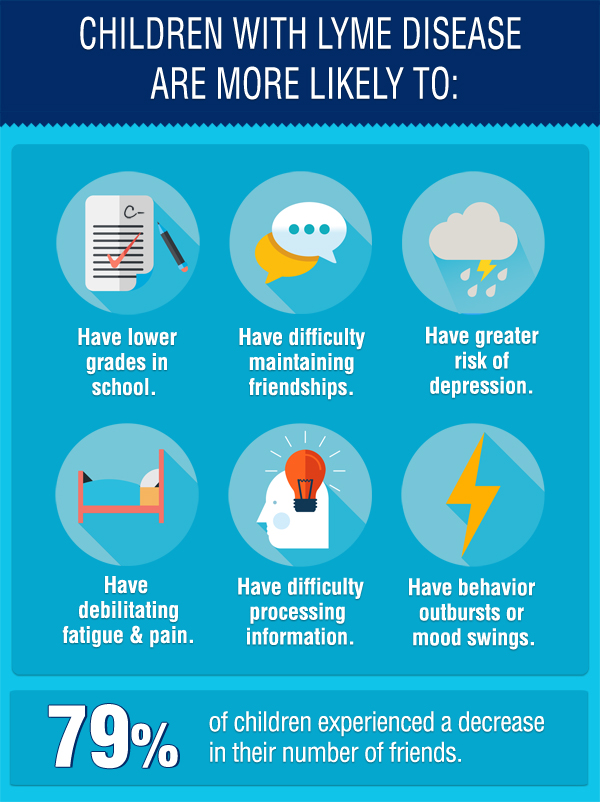Buy Ambien Online – Fast Zolpidem Delivery
 How to Take Ambien (Zolpidem)
How to Take Ambien (Zolpidem)
Ambien (Zolpidem) should be taken orally once a day, immediately before bedtime. Follow these dosage guidelines:
Buy Ambien Online – Fast Zolpidem Delivery
Ambien (zolpidem) is one of the world’s most prescribed medications for the rapid treatment of insomnia. This comprehensive, SEO-optimized guide covers everything about Ambien: its uses, how it works, medical and legal risks, safe online purchasing, dosage forms, price comparisons, alternatives, and practical advice for safe and lasting sleep improvement.
| Product Name | Dosage Forms | Average Price (USD) | Where To Buy |
|---|---|---|---|
| Ambien (Brand) | 5 mg, 10 mg tablets | $169.99 (30 x 10mg) | Online Pharmacy, Telehealth |
| Zolpidem (Generic) | 5 mg, 10 mg tablets | $59.99 (30 x 10mg) | Online Pharmacy, Telehealth |
| Ambien CR (Extended Release) | 6.25 mg, 12.5 mg tablets | $199.99 (30 x 12.5mg) | Online Pharmacy, Telehealth |
| Zolpidem Sublingual (Edluar, Intermezzo) | 1.75 mg, 3.5 mg, 5 mg, 10 mg | $89.99 (30 x 5mg) | Online Pharmacy |
Content Overview
- Ambien – The Standard in Modern Sleep Medicine
- Why Is Ambien Effective for Insomnia?
- Where to Buy Ambien Safely and Affordably?
- Problems When Buying Ambien Online
- Comparing Ambien Prices in Online Pharmacies
- How to Get a Prescription for Ambien?
- What Conditions Does Ambien Treat?
- Duration of Ambien Therapy and What to Expect
- Possible Ambien Dosages & Administration
- What to Expect from an Ambien Treatment Course
- Contraindications & Warnings for Ambien Use
- How to Minimize Ambien Side Effects & Maximize Results
- Ambien vs. Other Sleep Medications
- Legal Status, Online Risks, & Safe Purchase Tips
- Ambien FAQ
- Conclusion & Expert Advice
Ambien – The Standard in Modern Sleep Medicine
Ambien, the brand name for zolpidem tartrate, was first approved by the FDA in 1992 as a revolutionary alternative to traditional sedative-hypnotics for insomnia. Designed for rapid onset and short duration, Ambien quickly became the “go-to” prescription for millions of adults who struggle to fall or stay asleep.
Unlike older benzodiazepines, Ambien is considered a non-benzodiazepine “Z-drug.” It acts selectively on brain pathways responsible for sleep initiation, without many of the long-term risks or hangover effects associated with previous generations of sleeping pills. Ambien is especially valued for its ability to help patients fall asleep quickly, achieve restorative sleep, and wake without persistent drowsiness.
Ambien is available as immediate-release, extended-release (Ambien CR), and sublingual formulations (Edluar, Intermezzo), making it suitable for a variety of insomnia patterns, from trouble falling asleep to nighttime awakenings.
• Most prescribed non-benzodiazepine hypnotic in the US
• Rapid onset: sleep within 15-30 minutes
• Multiple formulations for different sleep problems
• FDA-approved for short-term use; trusted by millions
Why Is Ambien Effective for Insomnia?
Ambien works by targeting the GABA-A receptor complex in the brain, enhancing the effects of gamma-aminobutyric acid (GABA), the chief inhibitory neurotransmitter. However, unlike benzodiazepines, zolpidem binds selectively to the omega-1 subunit of GABA-A, producing strong sedation with less effect on muscle relaxation, memory, or anxiety.
- Sleep induction: Reduces the time to fall asleep (sleep latency), often from 45+ minutes to under 20 minutes.
- Minimal morning grogginess: Due to short half-life (2-2.5 hours for IR), less risk of next-day drowsiness compared to older hypnotics.
- Preserves sleep architecture: Promotes natural stages of sleep, with minimal suppression of REM and deep sleep compared to benzodiazepines.
- Low risk of rebound insomnia: With proper use, less withdrawal and relapse than with traditional sedatives.
Ambien is highly effective for both sleep-onset insomnia (difficulty falling asleep) and, in CR and sublingual forms, for sleep-maintenance insomnia (frequent nighttime awakenings).
Where to Buy Ambien Safely and Affordably?
Ambien is a Schedule IV controlled substance in the US and most developed countries. Legal purchase always requires a valid prescription. Nevertheless, the demand for convenient, private, and affordable access has driven the rise of online pharmacies and telemedicine.
- US-Licensed Online Pharmacies: Require a prescription from your healthcare provider, or offer telemedicine visits for insomnia evaluation. Medications are FDA-approved, sealed, and tracked.
- Telehealth Services: Sleep specialists or primary care telemedicine clinics can diagnose insomnia via video call and send e-prescriptions to your home or a partner pharmacy.
Warning: Websites that sell Ambien “no prescription needed” are operating illegally and are a major source of counterfeit or contaminated pills.
| Option | Prescription Required? | Verification | Delivery Time | Risks |
|---|---|---|---|---|
| Licensed US Online Pharmacy | Yes | Physician review, ID check | 1-3 days | Minimal |
| International Pharmacy | Varies | Unclear | 7-21 days | Customs, quality risk |
| Illegal/No Prescription Website | No | None | Unknown | Very high (counterfeits, legal issues) |
Problems When Buying Ambien Online
While online ordering is convenient, it is not without significant risks:
- Counterfeit drugs: Pills may contain incorrect doses, dangerous fillers, or even other drugs (including fentanyl), putting your life at risk.
- Legal prosecution: Importing or possessing Ambien without a valid prescription is illegal and punishable in most countries.
- Delivery failures and fraud: Many scam websites never deliver the product or send inert/ineffective tablets.
- Poor medical oversight: Without doctor supervision, dosing mistakes, dangerous interactions, or side effects go unmonitored.
Comparing Ambien Prices in Online Pharmacies
Ambien prices vary based on brand, formulation, quantity, and pharmacy. Generics are significantly more affordable. Telemedicine bundles may include evaluation, prescription, and delivery in a single package.
| Product | Dosage | Quantity | Average Online Price | Manufacturer |
|---|---|---|---|---|
| Ambien (brand) | 10 mg | 30 | $150-$200 | Sanofi |
| Zolpidem (generic) | 10 mg | 30 | $55-$90 | Various (Teva, Mylan, Torrent) |
| Ambien CR | 12.5 mg ER | 30 | $170-$240 | Sanofi |
| Zolpidem SL (Edluar, Intermezzo) | 5 mg, 10 mg | 30 | $80-$120 | Various |
Telemedicine bundles: Typically $90-$200 per month, including online evaluation, e-prescription, and medication delivery.
How to Get a Prescription for Ambien?
A prescription for Ambien requires a medical evaluation confirming a diagnosis of insomnia. Two main paths:
- Traditional doctor visit: Your provider reviews your sleep pattern, rules out other causes (depression, pain, medications), and tries non-drug solutions first. Ambien is prescribed when non-pharmacologic approaches fail and the risk profile is low.
- Telemedicine evaluation: Virtual sleep clinics or primary care telehealth services can assess insomnia remotely. After an interview, a prescription may be sent to a local or online pharmacy.
Note: Long-term use (>6 weeks) is not recommended. Refills require frequent follow-up to assess benefit, side effects, and risk of misuse.
State/Federal regulations: Schedule IV controls apply. Most states allow e-prescription, but some may limit mail delivery of controlled substances.
What Conditions Does Ambien Treat?
Ambien is FDA-approved for:
- Short-term treatment of insomnia: Trouble falling asleep (sleep-onset insomnia) or frequent awakenings (sleep-maintenance insomnia, with CR or SL forms).
- Insomnia due to depression or anxiety (adjunct only)
- Short-term relief of sleep disturbance from acute stress (bereavement, shift work, travel)
- Occasional use in hospital or surgical settings for sleep induction
| Indication | Evidence Level | Prescription Frequency |
|---|---|---|
| Primary insomnia | High | Very common |
| Sleep-maintenance insomnia | Moderate | Common (CR/Sublingual) |
| Situational/acute insomnia | Moderate | Occasional |
| Adjunct in psychiatric/medical disorders | Low | Rare |
Not for: Chronic primary insomnia without thorough evaluation, untreated depression, pediatric insomnia, or use beyond 6 weeks.
Duration of Ambien Therapy and What to Expect
Ambien is designed for short-term/intermittent use, typically 2-6 weeks. Prolonged use increases risk of dependence, tolerance, and withdrawal symptoms.
- Short courses (7-14 days): For acute insomnia due to stress, illness, or travel.
- Intermediate (2-6 weeks): For persistent but reversible insomnia; review after 2-4 weeks to assess response and plan for tapering.
- As-needed (“prn”): For predictable disruptions (shift changes, travel); not to exceed recommended dose or frequency.
| Week | Expected Effects |
|---|---|
| 1-2 | Rapid sleep onset, longer sleep, minimal hangover |
| 3-6 | Stable sleep improvement, possible tolerance, review need for ongoing therapy |
| After discontinuation | Possible rebound insomnia for 1-3 nights; less severe with gradual taper |
Possible Ambien Dosages & Administration
Ambien is available in several forms and dosages:
- Immediate-release tablet: 5 mg, 10 mg (standard)
- Extended-release (CR): 6.25 mg, 12.5 mg (for difficulty staying asleep)
- Sublingual tablets (Edluar, Intermezzo): 1.75 mg, 3.5 mg, 5 mg, 10 mg (fastest onset)
| Patient Group | Starting Dose | Maximum Dose | Timing |
|---|---|---|---|
| Healthy adults (IR) | 5-10 mg | 10 mg/night | Immediately before bedtime |
| Ambien CR | 6.25-12.5 mg | 12.5 mg/night | Immediately before bedtime |
| Elderly / Liver impairment | 5 mg (IR or CR) | 5 mg/night | Immediately before bedtime |
| Intermezzo (night awakening) | 1.75 mg (women), 3.5 mg (men) | Once per night (not within 4 hours of rising) | Upon middle-of-night awakening |
Important: Never take Ambien unless you can devote a full 7-8 hours to sleep. Never combine with alcohol or other sedatives.
What to Expect from an Ambien Treatment Course
Most patients experience:
- Faster sleep onset (15-30 min vs 45+ min without medication)
- Increased total sleep time by 30-60 minutes per night
- Improved sleep quality, less night-time awakening (with CR or SL forms)
- Minimal next-day “hangover” when used as directed
Common side effects: Mild drowsiness, dizziness, headache, brief amnesia (especially if awakened too soon), and sometimes GI upset.
Rare side effects: Sleepwalking, sleep-eating, sleep-driving (complex sleep behaviors, more common with higher doses or alcohol).
After stopping: Rebound insomnia may occur for a few nights. Tapering (e.g., alternate night dosing) can minimize this.
• Relief from most forms of insomnia when used as prescribed
• Not intended for chronic, lifelong use
• Works best with simultaneous non-drug sleep strategies (CBT-I, sleep hygiene)
Contraindications & Warnings for Ambien Use
- History of allergy to zolpidem or similar “Z-drugs” (eszopiclone, zaleplon)
- Sleep apnea or chronic respiratory insufficiency
- Severe liver impairment
- Pregnancy and breastfeeding (risk of sedation in newborns)
- History of complex sleep behaviors (sleepwalking, sleep-driving, sleep-eating)
- Severe depression, suicidal ideation, or substance abuse disorder
- Elderly (increased risk of falls, confusion)
- Concurrent use of CNS depressants (benzodiazepines, opioids, alcohol)
- History of drug or alcohol abuse
- Mild-moderate liver disease
Screen for depression, substance misuse, and medical comorbidities before prescribing Ambien.
How to Minimize Ambien Side Effects & Maximize Results
Common side effects:- Drowsiness, grogginess (especially if not getting 7+ hours of sleep)
- Dizziness, balance problems (fall risk)
- Short-term memory loss, confusion (if awakened prematurely)
- Abnormal dreams, nightmares
- GI upset (nausea, diarrhea)
- Sleepwalking, sleep-eating, sleep-driving
- Severe allergic reaction (anaphylaxis, angioedema)
- Hallucinations, agitation, “out of body” sensations
- Take Ambien only when you are ready for bed, with a full 7-8 hours available
- Avoid alcohol and other sedative medications
- Do not drive or operate machinery the next morning if you feel drowsy
- Store safely, out of reach of children and those at risk of misuse
- Report complex sleep behaviors, allergic reactions, or mood changes immediately
- If you need to stop, taper gradually under doctor supervision
Ambien vs. Other Sleep Medications
| Drug | Class | Onset | Duration | Main Uses | Dependence | Cost (avg/mo) | Notes |
|---|---|---|---|---|---|---|---|
| Ambien (zolpidem) | Z-drug hypnotic | 15-30 min | 6-8h (IR), 8-10h (CR) | Insomnia (onset/maintenance) | Yes (moderate) | $60-$170 | Most prescribed modern sleep med |
| Lunesta (eszopiclone) | Z-drug hypnotic | 20-40 min | 6-8h | Onset & maintenance insomnia | Yes (moderate) | $80-$190 | Metallic taste common |
| Sonata (zaleplon) | Z-drug hypnotic | 10-20 min | 4h | Sleep-onset insomnia, night awakenings | Yes (low) | $65-$150 | Good for middle-of-night dosing |
| Temazepam (Restoril) | Benzodiazepine | 30-60 min | 8-12h | Insomnia, anxiety | Yes (high) | $40-$110 | Higher dependence/next-day sedation |
| Doxepin (Silenor) | Tricyclic antidepressant | 1-2h | 8h+ | Sleep maintenance | No | $35-$100 | Anticholinergic side effects |
| Melatonin | OTC supplement | 30-90 min | 4-6h | Circadian rhythm insomnia | No | $10-$30 | Best for jet lag/shift work |
Ambien is best for rapid sleep induction and short-term use. For long-term insomnia, CBT-I, sleep hygiene, or safer, non-habit-forming meds may be preferable.
Legal Status, Online Risks, & Safe Purchase Tips
Ambien is a Schedule IV controlled drug in the US, UK, EU, and most developed nations. Legal purchase always requires a valid prescription.
- Buying/importing Ambien without prescription is illegal and risks criminal penalties
- Many “no prescription” sites sell fakes or contaminated drugs (overdose, poisoning risk)
- Only buy from US-licensed or LegitScript/NABP-approved pharmacies
- Telemedicine is a safe and legal way to get evaluation and prescription online
To stay safe:
- Always use a valid prescription
- Check pharmacy accreditation, secure payment, and verified pharmacist support
- Avoid any site that sells controlled meds without verification or “miracle cure” claims
Ambien FAQ
- How quickly does Ambien work?
Usually within 15-30 minutes. Take only when ready to sleep. - Can I buy Ambien without a prescription?
No. Legal purchase always requires a prescription. - Is Ambien addictive?
Dependence can develop with prolonged or high-dose use. Always use as directed, short-term only. - What if Ambien stops working?
Tolerance can develop; review with your doctor. Try non-drug sleep strategies and consider tapering. - What’s the safest dose for the elderly?
5 mg nightly (or lower); higher doses increase fall/confusion risk. - Can Ambien cause sleepwalking?
Yes-report any abnormal sleep behaviors immediately. - Can I use Ambien with alcohol?
Never-dangerous respiratory depression and blackouts may occur. - What’s the best alternative if Ambien is not tolerated?
Discuss options like Lunesta, Sonata, Silenor, melatonin, or CBT-I with your provider.
Conclusion & Expert Advice
Ambien (zolpidem) is the modern standard for rapid, effective relief of short-term insomnia, but it must be used with strict attention to safety, legal requirements, and medical supervision. Risks of dependence, complex sleep behaviors, and dangerous drug interactions mean Ambien is best reserved for severe or transient insomnia, while lasting sleep health is built on behavioral, environmental, and lifestyle changes.
- Only use as prescribed, short-term or “as needed”
- Never combine with alcohol or other sedatives
- Secure at home, out of reach of children or those at risk of abuse
- Report sleepwalking, confusion, or side effects immediately
- If stopping, taper under medical supervision
- For long-term sleep issues, pursue CBT-I and lifestyle strategies
- Order only from US-licensed pharmacies or legitimate telehealth services
With correct use, Ambien can deliver real, restorative sleep for those who need it most-unlocking better health, mood, and daily function.
This article is for informational purposes only and does not constitute medical advice. Always consult a healthcare professional before starting or discontinuing prescription medications for sleep.



